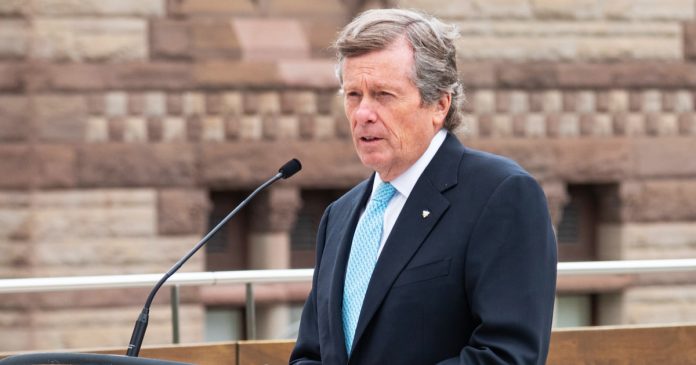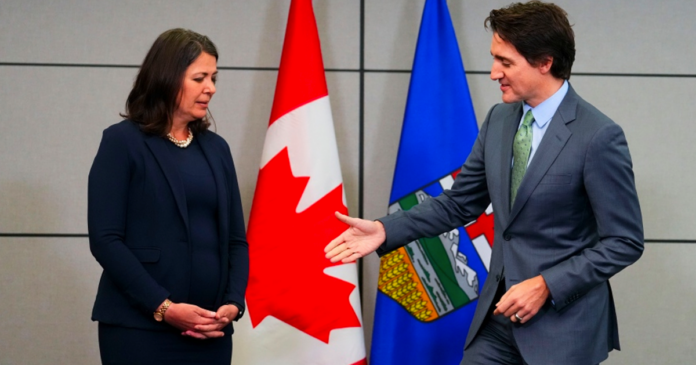Former mayor of Toronto John Tory has been found guilty of violating the city’s Code of Conduct by Toronto’s integrity commissioner regarding an affair he had with one of his staff as well as his participation in council votes on the FIFA World Cup.
The consensual relationship with the staffer began in the summer of 2020 and would ultimately lead to Tory’s resignation in 2023, after it became public.
On Thursday, Integrity Commissioner Jonathan Batty released a 122-page report wherein he found that Tory had violated the city council’s rules.
By engaging in a relationship with a staffer, who he referred to as Ms. A, “(Tory) failed to observe the terms of the Human Resources Management and Ethical Framework for Members’ Staff,” reads the report.
Additionally, Tory was in violation of the Code by participating in two city council votes on Toronto’s FIFA World Cup bid, concluded Batty.
The staffer he was having an affair with was also involved in organizing the event. Batty ruled that Tory’s vote on the issue could have potentially had a direct impact on the employment of the said staffer, which he said to be an inappropriate use of influence.
According to CTV News, Batty ruled that Tory’s actions weren’t in violation of the rules regarding Toronto’s Human Rights and Anti-harassment/discrimination Policy however..
Batty said that Tory did not use his influence as mayor to aid the staffer while she worked in his office, nor afterwards, once she was hired by Maple Leaf Sports and Entertainment.
Under different circumstances, council may sanction a mayor or councilor who violates the Code of Conduct through pay suspension and formally reprimanding them, but since Tory no longer sits as a member of council, a suspension of pay doesn’t apply.
“While it may be within the authority of Council to reprimand a former Member, it is my view that reprimanding a person who requested I investigate their conduct as they resigned office would serve no purpose,” wrote Batty.
Tory admitted to the affair publicly before resigning in February and he was the one who requested that a probe be launched into the matter by the commissioner.
Batty felt that sanctioning Tory would be unnecessary, however he did say that it was “unfortunate” that he didn’t seek the proper advice regarding how to best handle the relationship sooner.
“As shown, Mr. Tory put himself in a conflict of interest when he began this relationship,” wrote Batty. “Because it was not managed appropriately from the outset, it raised questions whether City resources were used inappropriately. It raised questions whether Mr. Tory improperly used his influence for the benefit of Ms. A while she was on his political staff and when she was looking for a job from the Mayor’s Office.”
Tory released a statement on Thursday wherein he wrote that he “fully accepts” the consequences of his actions and that he regretted not handling the situation differently.
“I sincerely regret the impact my actions had on so many people in my life and on the people of the City of Toronto who it was my honour to serve for so many years,” wrote Tory. “I have tried to deal with this in an honourable manner and I am looking forward to finding new ways to contribute to the success of the city I love.”
The former mayor also expressed his gratitude towards Batty and his staff for “their professionalism and thoughtfulness throughout this process.”
The snap resignation of Tory prompted a by-election to elect a new mayor in which over 100 candidates participated. Olivia Chow won the election in June to replace the outgoing Tory.



























